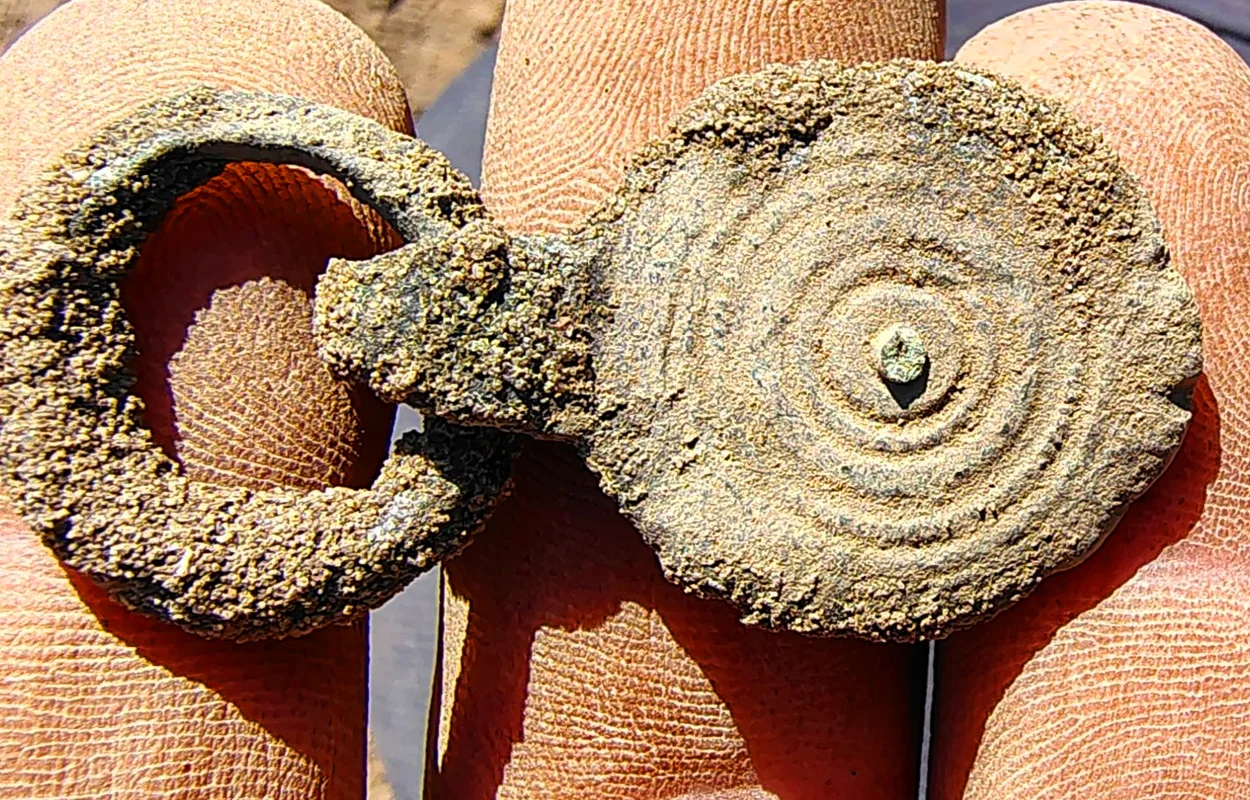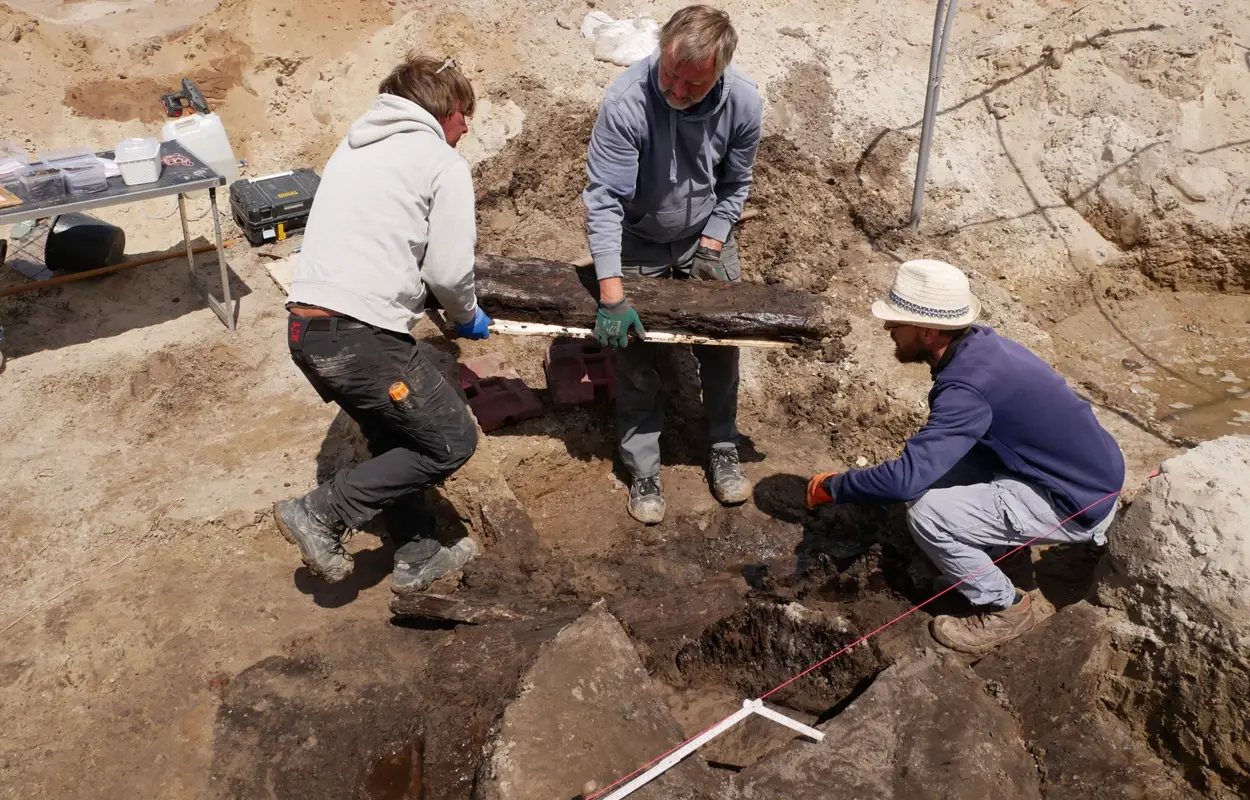An archaeological excavation in Delbrück-Bentfeld, a town in the east of North Rhine-Westphalia, Germany, has unearthed nearly 400 features of archaeological interest that span several centuries.
Excavations first commenced in November 2024 at the edge of a Roman-era settlement, where archaeologists have now identified two large buildings, pit houses, storage and refuse pits, wells, and a cremation grave.
The features indicate continued occupation from the 2nd to the 5th centuries AD, which also includes over 750 artefacts, most of which are made from metal found preserved in a cultural layer beneath a thick ash deposit.
One of the most remarkable discoveries is a Roman-era cremation burial, which contained a spearhead, garment clasps, a fragmented bone comb, flint, and an intricately crafted animal-head belt buckle.

Experts believe these grave goods likely belonged to a Germanic mercenary who served in the Roman army, an unprecedented find for the East Westphalia region.
In the final days of the excavation, archaeologists uncovered an ancient well dated to the Migration Period. The well is constructed from sections of hollowed-out tree trunks and contained preserved wickerwork, a leather remnant, and even an insect wing.
The well was found beneath a charcoal-rich layer containing burnt bone fragments and glass beads. One of the timbers also has carved markings, suggesting that the structure may have served a symbolic or ritual purpose, rather than simply functioning as a source of drinking water.
Dr. Sven Spiong, head of the Bielefeld branch of the LWL Archaeology Centre for Westphalia, said: “The piece of beam was certainly once used in a house and was later recycled for the well construction. A special feature of the beam remnant is the presence of several character-like incisions. Further investigations will investigate their possible significance.”
Header Image Credit : LWL
Sources : Regional Association of Westphalia-Lippe





